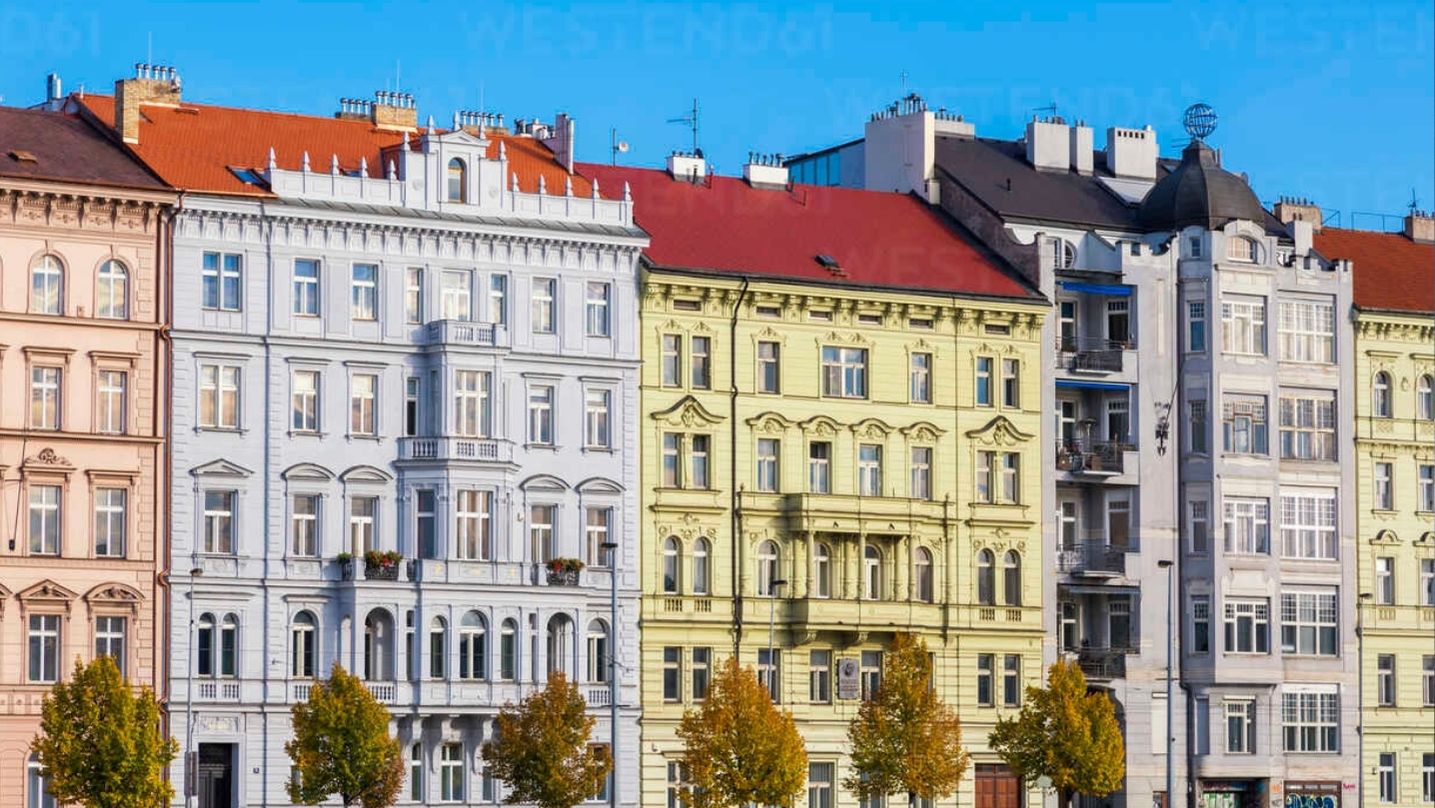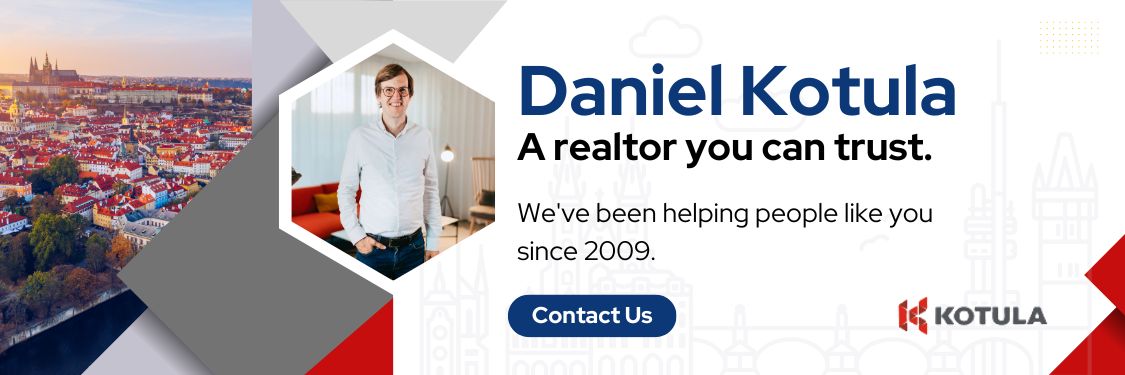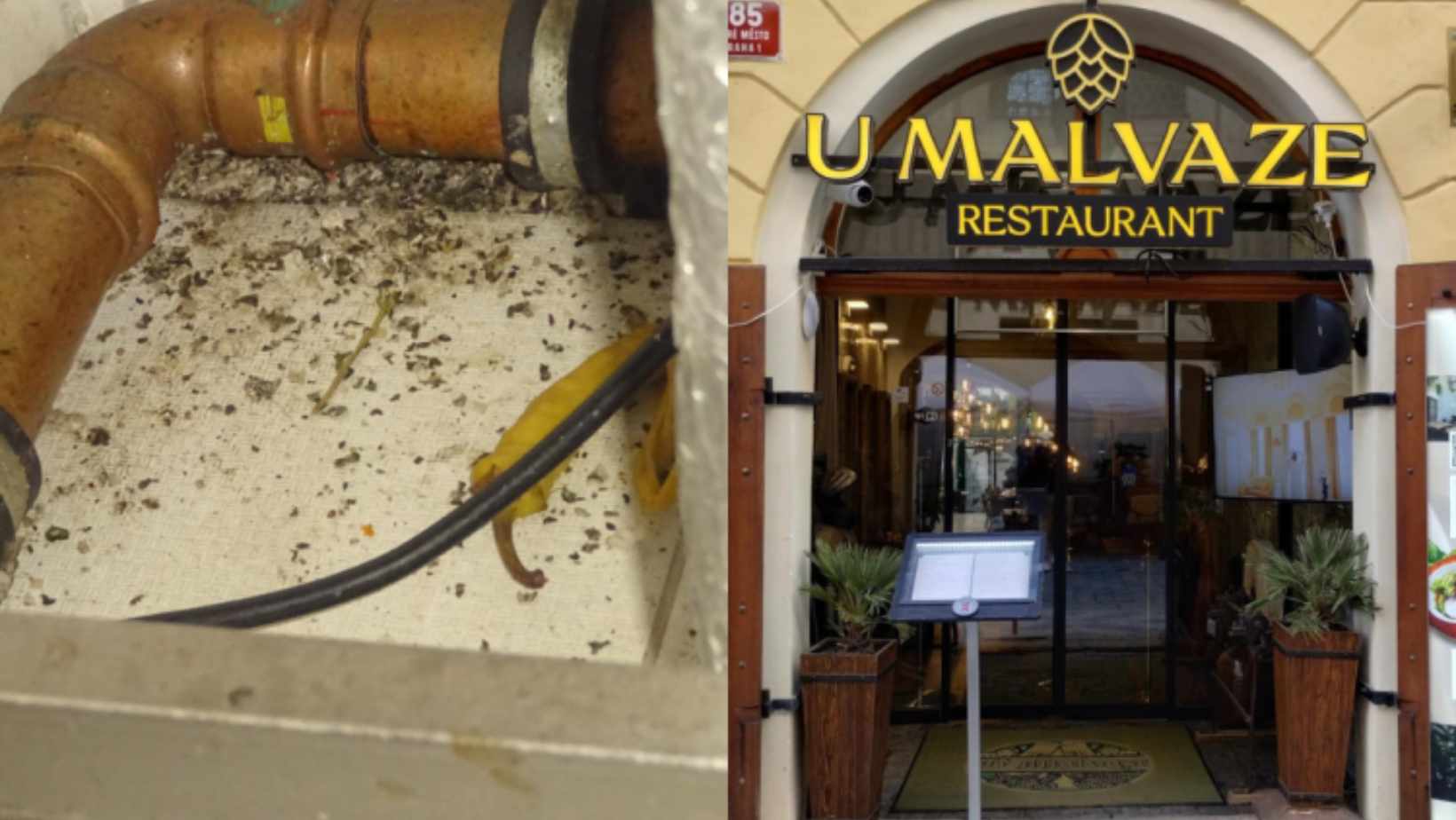Better to Buy Real Estate in Czechia Under Company Name, or in Your Own Name?
Daniel Kotula

This is a frequent question we get from clients who plan to invest in property in the Czech Republic, whether that’s an investment in apartments, apartment buildings, land or commercial real estate.
The answer is very simple: if you plan to own the property for a substantial time, then in the vast majority of cases it is much better to buy the property in your name, primarily because of the income tax savings you’ll make should you decide to sell the property at some point in the future.
Let’s take a look at a simple and also very common example.
In 1992, two different entrepreneurs got the idea to buy an apartment building in Vinohrady in Prague. At the time, buildings such as these sold for about 1 million crowns. From today’s point of view, this is a ridiculously small amount of money, as the value today would be closer to 100 million crowns.
However, at that time, buying real estate was not very common; rent controls were in place, buildings were in a very bad condition, etc. In this example, the first of our two entrepreneurs decided to buy a building for a company that he founded solely for the purpose of owning this property, while the second bought a building in his own name.
Driverless Metro Trains pragueIt is now 2020, and both entrepreneurs are 28 years older. They are already tired of taking care of the building, so they decided to sell the property. Both found a buyer who was willing to pay 100 million Czech crowns. During their period of ownership of the property, both businessmen had invested a total of 5 million Czech crowns in the buildings and also claimed depreciation of 3 million Czech crowns against the rental income.
Now let’s calculate how much each of the entrepreneurs will pay in taxes:
First, the entrepreneur who bought a building through a COMPANY
- Selling price: 100 000 000 CZ
- Tax value of the building in accounting: 3,000,000 CZK (comprising acquisition price plus appreciation, minus depreciation)
- For taxation: 97,000,000 CZK
- Business income tax (19%): 18,430,000 CZK
- 81,570,000 CZK remains in the company’s accounts after tax has been paid. The entrepreneur wants to use this money for their own purposes, e.g., to give some money to their children, pay for the reconstruction of the family house, travel abroad, etc. To use this company money for personal purposes, for example, to transfer it to their account and spend it on whatever they like, the entrepreneur must tax this amount at an additional 15%.
- Personal income tax (15%): CZK 12,235,500
- The entrepreneur will receive the following to his account: 69,334,500 CZK
- In total, they will have paid the following amount in taxes: 30,665,500 CZK
Now let’s look at the entrepreneur who bought a house in their OWN NAME
- Selling price: 100 000 000 CZK
- Natural persons in the Czech Republic are exempt from income tax on the sale of any property if they have owned the property for more than 5 years (for real estate purchased up to the end of 2020) or 10 years (for real estate bought from the start 2021 and later). So, the tax value of the building in accounting is not important for our calculation here.
- The entrepreneur receives the following to their personal account: 100,000,000 CZK
- Total taxes: 0 CZK
- The decision made by the first entrepreneur in 1992 to buy real estate for a company was a mistake that cost 30 million CZK.
The option to sell a business instead of real estate
It is important to say at this point that the entrepreneur who bought the building through a company could have opted to sell the company, rather than the property – the income from the sale of the company is also exempt after a certain period of time and therefore the matter would have been resolved.
While this is true to an extent, it is only partially true. They would not have received 100 million CZK from the sale of the company as they would have from the sale of the building, but probably significantly less than that. Importantly, the company’s buyer would have calculated that, compared to future rental income, he can only claim the depreciation of the tax value of the building in the accounting, which in this case is 3,000,000 CZK.
Whereas, if the buyer were purchasing real estate (not a company), they can pay almost the entire house purchagse price, i.e., CZK 100,000,000 CZK. In the future, the buyer will pay an extra 18,430,000 CZK (approximately) in taxes from the rent than if they had bought the property, and will therefore want a reasonable discount given this future tax burden.
In the majority of cases, the tax value of real estate held in companies is significantly lower than the current market value of real estate, mainly due to depreciation and rising real estate prices.
In conclusion
To reinforce the central point of this article – that long-term real estate ownership in the Czech Republic is far more advantageous when purchased under your individual name – let’s examine the case of Czech real estate tycoon Václav Skala’s acquisition of the iconic Dancing House (along with numerous other high-end properties).
Of course, Mr. Skala purchased these properties under his own name, including the Dancing House, for the sum of 360,000,000 CZK.
When Mr. Skala eventually sells the property, let’s say for 600,000,000 CZK, he won’t have to pay a single crown of income tax on his profit of 240,000,000 CZK.
-
NEWSLETTER
Subscribe for our daily news











